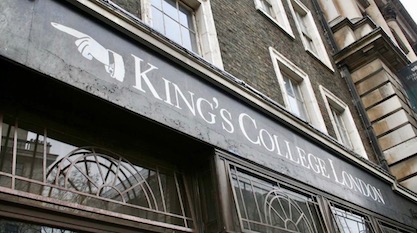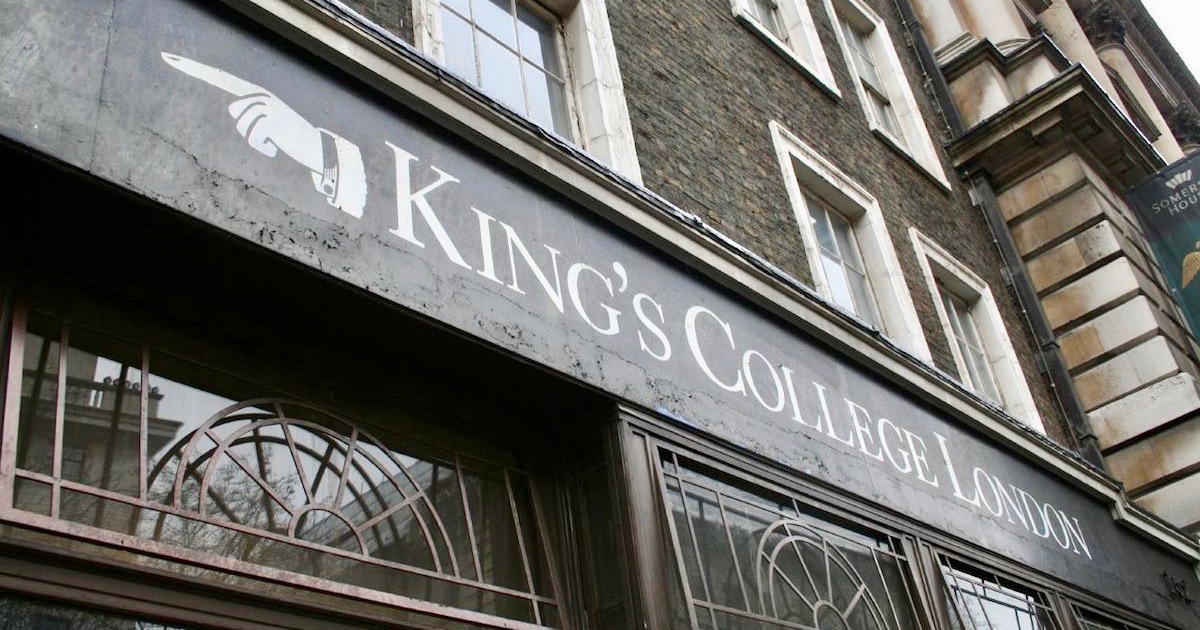 Free Speech
Free Speech
“Risky” Business — College Shuts Down Professor over Speech on Science, Free Expression


Adam Perkins, King’s College London lecturer in Neurobiology of Personality, was scheduled to deliver a talk at his institution. But King’s College cancelled the event because they considered it too “high risk.” What was he going to say that was so “risky” that he needed to be shut down?
A version of the speech appears as a new article on Quillette. His theme? “The Scientific Importance of Free Speech.” Whoa, now that’s radioactive.
He starts off with a bang. “We need free speech in science because science is not really about microscopes, or pipettes, or test tubes or even Large Hadron Colliders. These are merely tools that help us to accomplish a far greater mission, which is to choose between rival narratives, in the vicious, no-holds-barred battle of ideas that we call ‘science’.”
Perkins makes an interesting reference to Darwinian evolution. Although one cannot deduce whether or not he’s a critic, and it would be safe to assume not, it is nonetheless interesting that he chose to include natural selection as a subject where scientific “argument” and “debate” are “allowed.”
But scientific domains in which a single experiment can provide a definitive answer are rare. For example, Charles Darwin’s principle of evolution by natural selection concerns slow, large-scale processes that are unsuited to testing in a laboratory. In these cases, we take a bird’s eye view of the facts of the matter and attempt to form an opinion about what they mean.
This allows a lot of room for argument, but as long as both sides are able to speak up, we can at least have a debate: when a researcher disagrees with the findings of an opponent’s study, they traditionally write an open letter to the journal editor critiquing the paper in question and setting out their counter evidence.
Debate in science about Darwinian evolution? If only more of that were “allowed.”
Perkins also writes:
When one side of a scientific debate is allowed to silence the other side, this is an impediment to scientific progress because it prevents bad theories being replaced by better theories. Or, even worse, it causes civilization to go backward, such as when a good theory is replaced by a bad theory that it previously displaced.
He goes on to discuss socialist rejection of Mendelian genetics, Lysenko’s advocacy of the idea that acquired characteristics can be heritable, as well as the 1986 catastrophe of the Space Shuttle Challenger. Perkins’s conclusion seems to be that society must allow scientific debate on evidence because if it does not, we create an unhealthy scientific environment that will cause harmful real-world impacts.
Agreed. Free speech purifies science. Dogmatic perspectives, especially Darwinian ones, do not. Sometimes they do far worse, as documented in the forthcoming documentary Human Zoos and in historian Richard Weikart’s work.
Yes, Perkins barely mentions evolution, but who can blame him? Even talking in a general matter about debate in science is “high risk” enough. Now, imagine if he’d discussed the chilling effect around questioning evolution. Or, if he was a scientist who began to have doubts about neo-Darwinism himself, and dared to mention those in public.
Those are sticky situations we’ve highlighted for years, and you can read about them at the new site, Free Science.
Photo credit: Katy Ereira [CC BY 2.0], via Wikimedia Commons.
